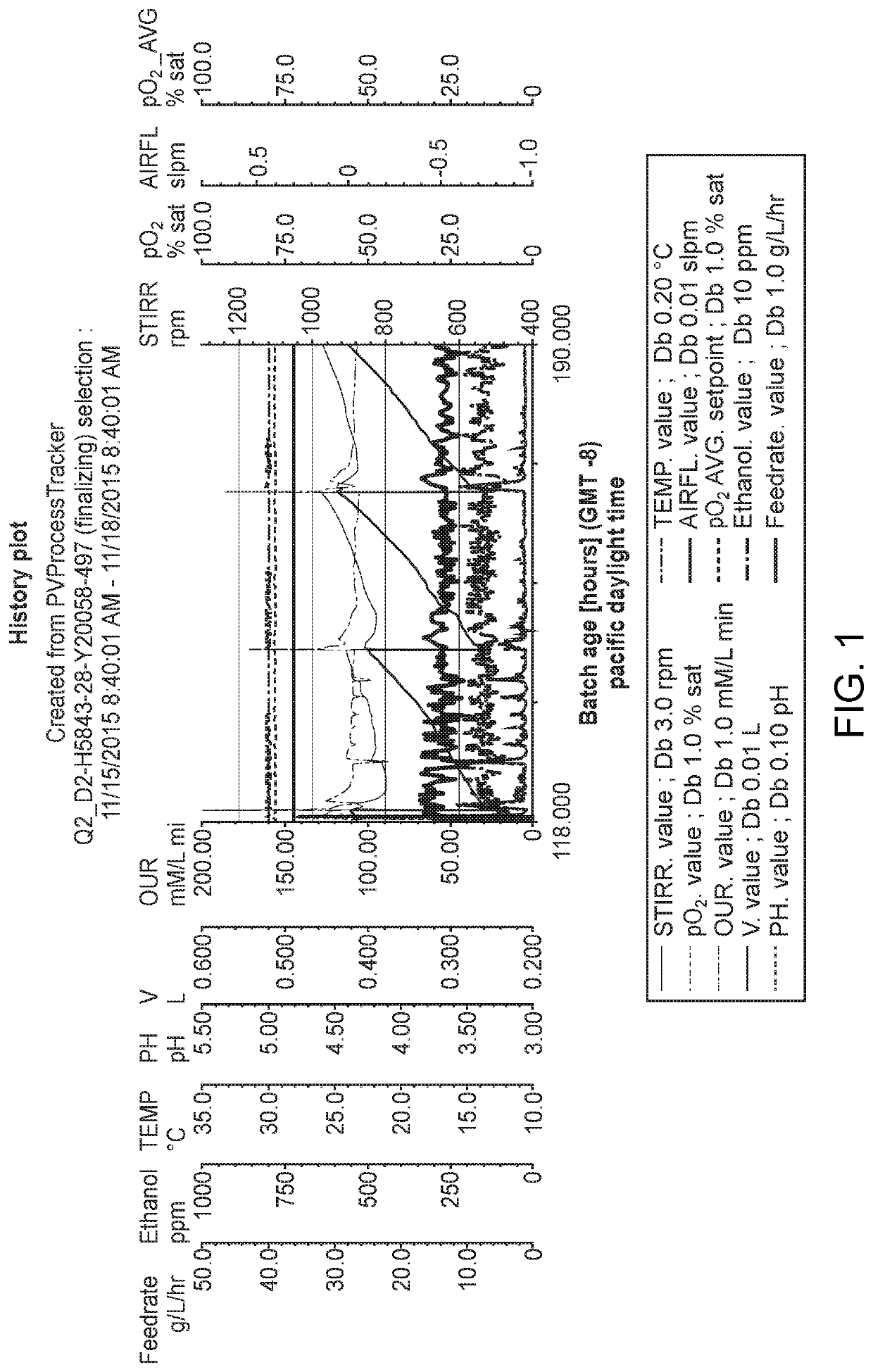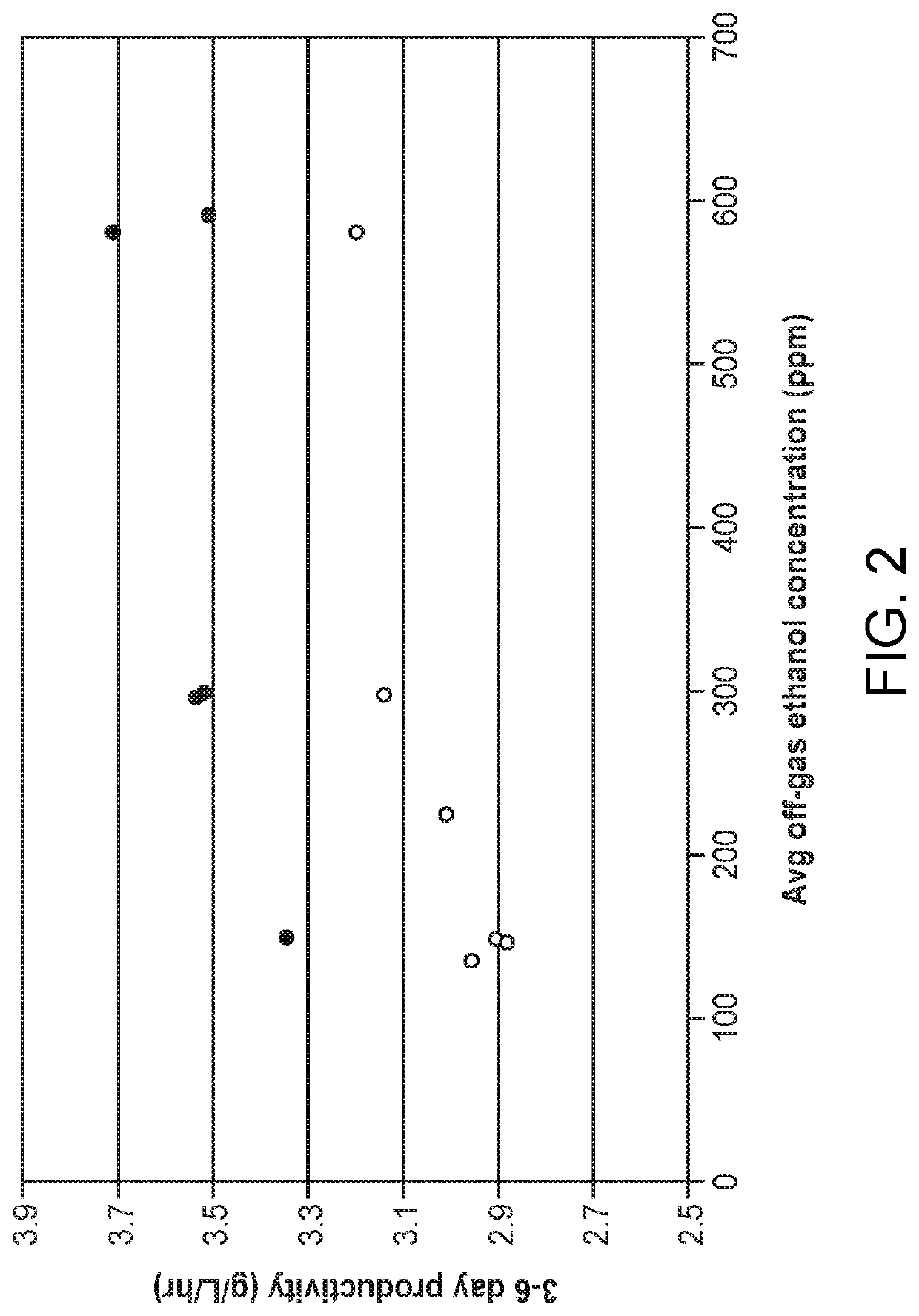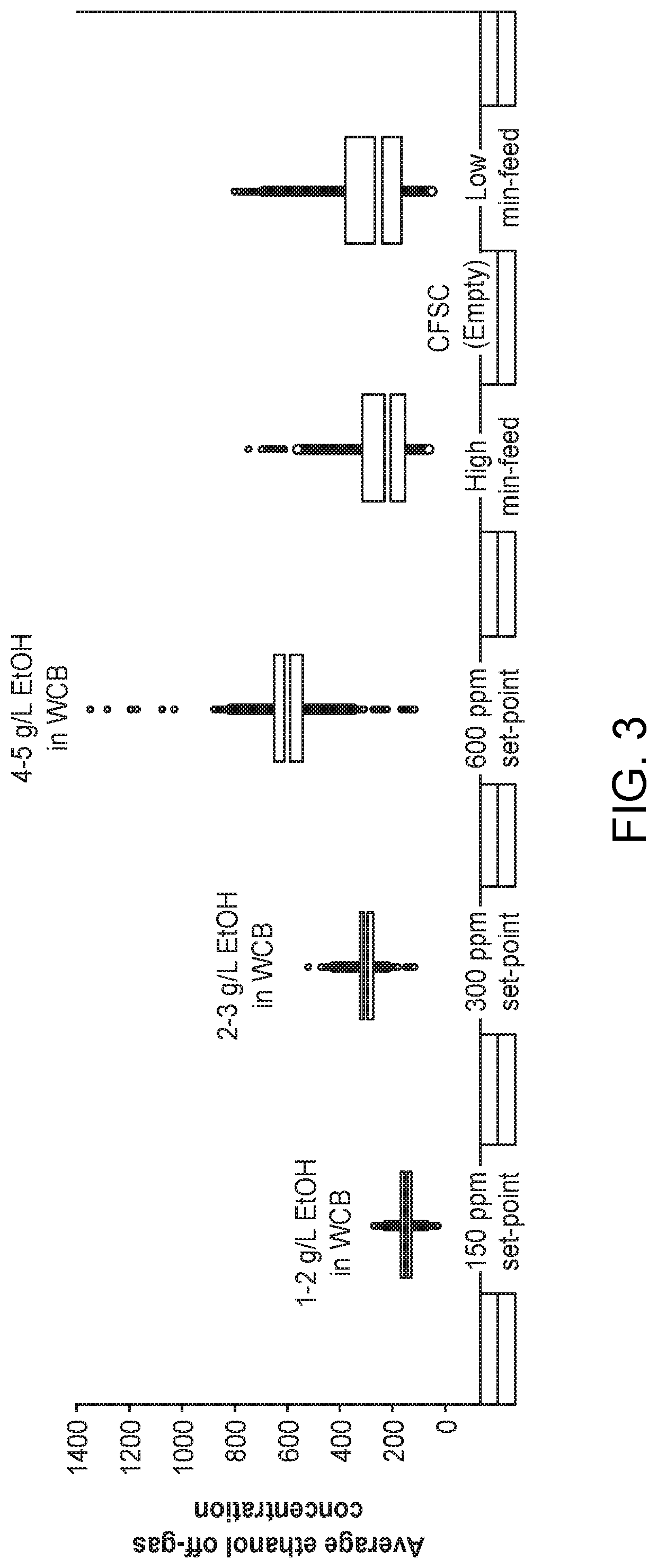Methods for controlling fermentation feed rates
- Summary
- Abstract
- Description
- Claims
- Application Information
AI Technical Summary
Benefits of technology
Problems solved by technology
Method used
Image
Examples
example 1
6.1 Example 1
[0059]This example provides a method demonstrating increased an exemplary method for determining the cell density (OD600) of a yeast cell culture.
[0060]Two strains were evaluated in a continuous feeding process using target concentrations of 150, 300, and 600 ppm ethanol in the off-gas. Biomass was generated using typical pulse feeding processes. A production phase with continuous feeding started after approximately 48 hours. During production, the oxygen uptake rate (OUR) was controlled at 110 mmol / L / h and no dissolved oxygen spike checks were needed. A process trend of a continuous feeding process using ethanol off-gas is shown below in FIG. 1.
[0061]FIG. 1 provides an MFCS (BioPAT) trace of a continuous feeding process. The off-gas ethanol concentration (blue) was maintained at 150 ppm, by adjusting the feed rate (green). The OUR (red) was held constant by adjusting the agitation (dark green). The dissolved oxygen stayed near zero (black).
[0062]A 3-6 day interval was ...
PUM
 Login to View More
Login to View More Abstract
Description
Claims
Application Information
 Login to View More
Login to View More - R&D
- Intellectual Property
- Life Sciences
- Materials
- Tech Scout
- Unparalleled Data Quality
- Higher Quality Content
- 60% Fewer Hallucinations
Browse by: Latest US Patents, China's latest patents, Technical Efficacy Thesaurus, Application Domain, Technology Topic, Popular Technical Reports.
© 2025 PatSnap. All rights reserved.Legal|Privacy policy|Modern Slavery Act Transparency Statement|Sitemap|About US| Contact US: help@patsnap.com



